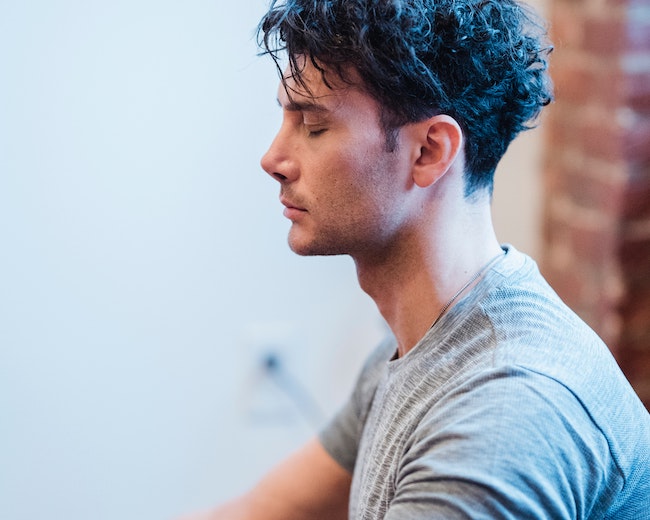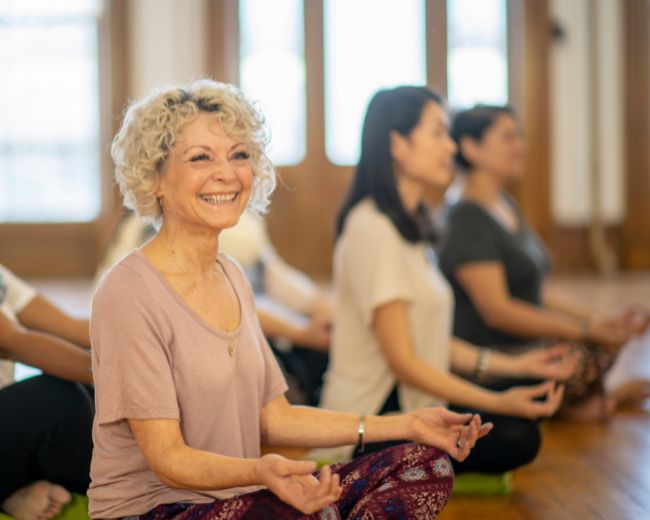(Hint: It’s not about you)
Is self-promotion necessary for yoga teachers today? Does making a living as a yoga teacher mean you need to invest in professional photo shoots; post on Instagram daily; and find every opportunity to sell yourself?
I certainly don’t believe that having more followers on Instagram makes you a better yoga teacher. I don’t even think it even necessarily helps you get a job (though in some cases it can).
But I do believe that if you want to make a living as a yoga teacher, some marketing is necessary – regardless of whether you want to teach in local gyms and studios, run retreats around the world, or open your own studio.
For many years, ‘marketing’ was considered a dirty word in yoga circles and I know some teachers who still feel that way. I know others who have embraced the Instagram culture and simply see self-promotion as part of their role. But most, I think, sit somewhere in between – in the uncomfortable land of viewing self-promotion as a necessary evil.
For many years, I fell into this camp. I’m reserved and very much an introvert and for a long time I struggled with the idea of putting myself forward as a teacher, to an extent that was frankly ridiculous: I’d meet someone at a party and when they asked what sort of work I did I was reluctant to say I was a yoga teacher, or to tell them where. Why? Because I didn’t want them to feel like I was pressuring them to attend my classes. Stupid, I know.
What makes this even more stupid is that around this time, as well as teaching yoga I worked in communications and marketing within the not-for-profit sector. Yes, I was a marketing professional.
I worked for charities (including Amnesty International, The Wilderness Society and Clean Up Australia), writing powerful copy asking people to donate money, crafting and implementing social media strategies, and engaging SEO specialists, among other things.
I had no qualms about promoting these organisations – why would I? They were causes I believed in and even felt passionate about.
Finally it dawned on me that yoga is no different. When I’m putting myself forward as a yoga teacher, I’m not the product. I don’t need to sell myself.
The benefits of yoga are the products I need to pitch. Rather than marketing myself, I need to promote the potential for self-awareness, compassion, kindness, health, wellbeing and happiness.
I believe that this is the first step in self-promotion as a yoga teacher – realising that it’s not actually about you. Not only is a whole lot easier because it doesn’t feel so narcissistic, but it’s also a whole lot more powerful.
Put yourself in the shoes of a potential student who’s relatively new to yoga. What’s more likely to convince you to attend my classes?
- Marita is a highly experienced vinyasa yoga teacher. She has completed more than 1500 hours of training and has taught classes, workshops, retreats and teacher training courses. In her classes she combines skilful hands-on adjustments with finely honed verbal cues to create an immersive yoga experience.
- Marita’s yoga classes enable students of all levels to become fully present within their own bodies. Immerse yourself in a moving meditation to strengthen and lengthen your muscles; balance effort with ease; and find a state of inner stillness within the flow.
See how much more powerful it is when I don’t talk about myself, I talk about what I can offer my students through yoga?
In subsequent articles on promotion, I’ll delve more into more nitty gritty of how to promote your services – language to use, different platforms you can use to market yourself, and so on. For now, I just want you to wrap your head around the idea of promoting your services without it being about yourself, and I want you to think a bit about what that will look like for you specifically.
If you have trouble putting yourself out there or talking yourself up, or if you wonder how you can possibly stand out among a sea of yoga teacher training graduates, here’s a tiny bit of homework:
- Write a list of ways in which yoga has benefited you (or even changed your life)
- Ask (at least) five regular students what they like about your yoga classes
- Use the information gathered above to write down some messages you can use to promote your yoga services. They don’t have to be polished – focus on ideas not fine tuning.
In the meantime, I’ll leave you with a final thought: I believe that as a yoga teacher, you have a responsibility to share your knowledge and skills. You owe it to the world to pass on the benefits you’ve received. And you can’t do that if you don’t tell people about what you can offer.






Leave A Comment